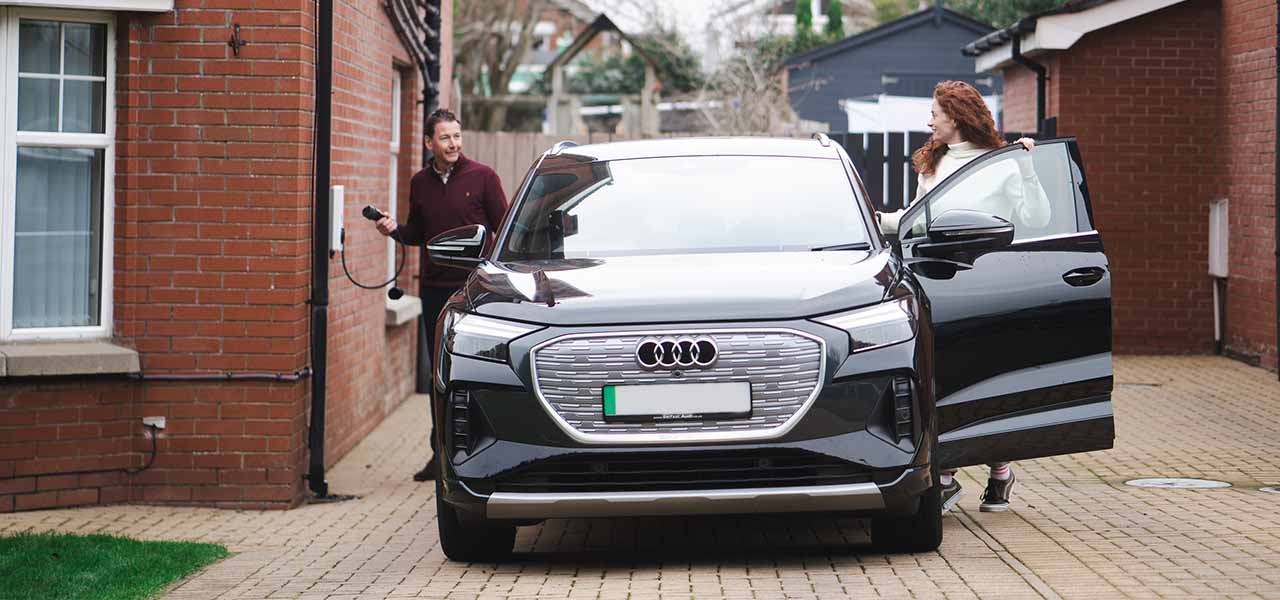Hybrid cars combine petrol power with electric motors to improve fuel efficiency and reduce emissions. They can be a good middle ground between traditional cars and fully electric vehicles, but they also come with higher upfront costs and some drawbacks. Here’s a clear look at the advantages and disadvantages.
How do hybrid cars work?
A hybrid car uses both a petrol engine and an electric motor. Offering a middle ground to between conventional petrol cars and electric vehicles. The electric motor runs at low speeds or for short distances, while the petrol engine takes over at higher speeds or when the battery runs low. Some hybrids recharge their battery through regenerative braking, while plug-in hybrids (also known as PHEVs) can also be charged directly from an outlet.
-
Difference between hybrid, plug-in hybrid & electric vehicles
Electric vehicles run solely on electric motors.
Hybrid vehicles have combustion engines and an electric battery that is charged by regenerative braking - energy created when the car brakes.
Plug-in hybrid vehicles have a combustion engine and an electric motor that is plugged in to charge like pure electric vehicles. Plug-in hybrid cars can run for longer on electric power alone than standard hybrids - usually up to 50 miles - but their range isn’t as long as pure electric cars. PHEVs usually have a larger battery but smaller fuel tank than hybrid cars.
Advantages & disadvantages of hybrids (at a glance)
Hybrid cars and PHEVS have a variety of advantages and disadvantages when compared to other vehicle types. Here are the top pros and cons at a glance, before we discuss them in more detail.
| Pros | Cons |
|---|---|
Improved fuel economy | Higher purchase price |
| Lower tailpipe emissions | Poor fuel economy on long journeys |
| Financial incentives | Maintenance costs |
| Reduced range anxiety | Battery replacement |
| Easy transition to EV | Still produces emissions |
Advantages of hybrid cars

Let’s explore the top 5 advantages of hybrid cars and PHEVs. Here are some areas in which PHEVs have got the edge over the alternatives.
Improved fuel economy
Within the electric range of a hybrid, you can save money on petrol and diesel. There are no fuel costs for shorter journeys when the car is running off its battery — just the significantly lower cost of charging. Over time, this reduces your overall running costs and the number of trips you make to the petrol station.
Lower tailpipe emissions
For as long as a hybrid car is running on its electric battery, it will release zero tailpipe emissions (just like a pure electric car). Absolutely no carbon dioxide or other greenhouse gases are emitted on shorter journeys, which makes both hybrids and PHEVS better for the environment than petrol and diesel cars.
Financial incentives
Some hybrid models fall into lower tax bands than petrol or diesel cars, which can help reduce your annual running costs. While financial support can vary, having the option to charge a plug-in hybrid car at home can also add long-term savings.
Make the Most of Charging at Home
Planning to buy a plug-in hybrid? Installing a home chargepoint can make it easier to keep your battery topped up and reduce day-to-day running costs.
Explore EV Chargepoints
Reduced range anxiety
For longer journeys — particularly in remote areas — the backup option of a petrol or diesel engine means you don’t need to worry about being stranded without a nearby charger. This alleviates what’s known as range anxiety — the dread of running out of charge midway through a journey.
Easy transition to EV
A hybrid car or PHEV can be a simple way of making the switch to electric cars. You’ll build your understanding of how and when to charge while still enjoying the familiarity of a combustion engine. If you later make the move to a pure electric car, it will be a much smoother transition and you’ll know exactly what’s involved.
Disadvantages of plug-in hybrid cars

But it’s not all good news when it comes to hybrid cars. Let’s look at the main 5 disadvantages of hybrids and PHEVs in comparison to pure electric cars and conventional cars.
Higher purchase price
Hybrid and plug-in hybrid cars are typically more expensive to buy than petrol or diesel vehicles. This is due to the extra technology required to combine two power systems — an electric motor and a combustion engine. Compared to full EVs, hybrids also tend to sit in the middle in terms of pricing.
Poor fuel economy for long journeys
Electric batteries are heavy, and hybrids carry both a battery and a petrol or diesel engine. Once the electric range is used up (which is often quite short) the vehicle relies on its combustion engine to complete the journey. This added weight can lead to lower fuel economy than you’d get from a petrol or diesel car on long-distance drives.
Maintenance costs
Hybrids combine two different types of drivetrain, which can make maintenance more complex and potentially more expensive. The electric components may require specialist servicing or parts. Meanwhile, the combustion engine still needs regular servicing like any petrol or diesel car — so you could face costs from both systems over time.
Battery replacement
As we mentioned in relation to maintenance, replacing the hybrid care battery can be very expensive in comparison to new batteries for conventional petrol or diesel cars. It's worth noting that batteries are usually under warranty for at least 100,000 miles, so this isn’t an everyday problem.
Still produces emissions
While hybrids and plug-in hybrids are cleaner than petrol or diesel cars, they still produce tailpipe emissions whenever the combustion engine is in use. This means they’re not as environmentally friendly as fully electric vehicles. For drivers aiming to reduce their carbon footprint as much as possible, a hybrid may not go far enough.
Are hybrid cars worth it?
Whether a hybrid or plug-in hybrid car is worth it will depend on your lifestyle and the journeys you make. If you mostly drive short distances or around town, they offer the benefits of electric driving with the flexibility of a petrol engine — making them a good option if you’re not ready to switch fully to an EV.
As petrol and diesel cars are gradually phased out in the UK, hybrids are expected to hold their resale value better than conventional models.
If you’re aiming for a greener home and a more eco-friendly lifestyle, a plug-in hybrid can be especially convenient. With a home charging setup, you can top up overnight and make the most of your electric range without relying on public chargers.
Already thinking about charging at home?
If you're planning to charge overnight, our EV tariffs offer cheaper electricity rates and are matched to 100% renewable energy.
Discover EV tariffs
Frequently asked questions
Still have some questions on hybrid cars and plug-in hybrids? Here are some of the most frequently asked questions we get from Power NI customers.
-
Does a plug-in hybrid charge whilst driving?
Some plug-in hybrid vehicles self-charge when you brake in the same way that hybrid cars do. Others don’t have this regenerative braking capability. In reality, its impact is minimal in comparison to plugging in the vehicle to charge it. All PHEVs self-charge to some level so that they can run as combustion cars when there is no electric charge. -
Does the UK ban on petrol & diesel cars affect plug-in hybrids?
Yes, the UK plans to phase out the sale of new petrol and diesel cars in favour of low- and zero-emission vehicles. Plug-in hybrids are currently exempt from the initial ban and will remain available for a longer period, provided they meet certain emissions standards. -
How long hybrid car batteries last?
Hybrid car batteries will typically last up to 10 years or 100,000 miles. Some vehicle owners have reported PHEV batteries lasting much longer than this - even up to 200,000 miles. Batteries will usually be under warranty for around 100,000 miles, so you should be covered if you experience problems before this. -
Should I charge a plug-in hybrid every day?
That will depend on how often you’re using the car and how far you drive. If you use all or most of the electric range every day, it makes sense to top it up regularly to give yourself the full zero-emission, high-efficiency range of electric miles. -
What happens if you don't charge a plug-in hybrid?
If you don’t charge a plug-in hybrid, you can still drive it as you would a conventional car. Although it is designed to be plugged in to charge, the battery has some self-charging capability. This allows the car to drive like a petrol or diesel car even when it hasn’t been plugged in. -
At what speed do hybrid cars switch from battery power to petrol power?
Plug-in hybrids can use battery power at any speed. While hybrid cars can only power a car at lower speeds, PHEVs can use their electric battery even at high speeds. This is due to the different ways in which the battery is charged.



